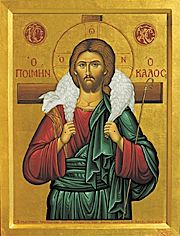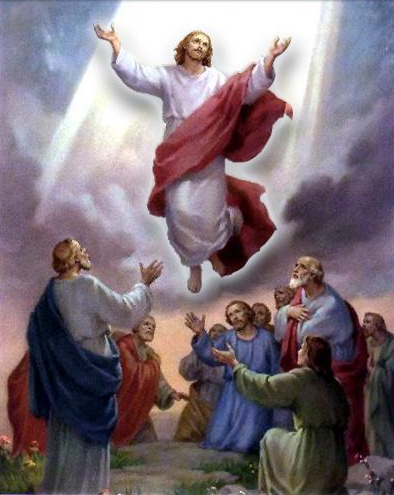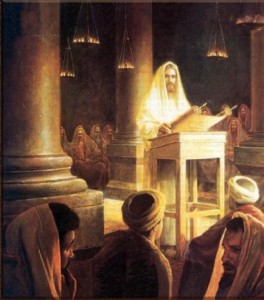
Christ’s Atoning Work
And I heard a loud voice in heaven, saying, “Now the salvation and the power and the kingdom of our God and the authority of his Christ have come, for the accuser of our brothers has been thrown down, who accuses them day and night before our God. And they have conquered him by the blood of the Lamb and by the word of their testimony, for they loved not their lives even unto death.
Rev. 12:10-12
A few weeks ago, I was experimenting with electronic reading. At Best Buy, we sell the Sony E-Reader and Barnes and Noble Nook. I have examined their respective features pro and con, but I was not quite sold on either one. For months, I have been intrigued by the Amazon Kindle. I preferred an ereader with touch screen which at this moment Kindle does not produce. I decided to wait for the next generation model to see if they might produce a better interface. I was saving my Amazon gift certificates on-line for a possible future purchase.
However, the iPad made its debut and changed everything about electronic reading. Most reviews are saying that the Kindle application on an iPad is the best reading experience. Before, I made a decision about what ereader I wanted, I decided to download the Kindle application on my Mac Book Pro (I have since ruined the computer by spilling water on it) and then on an old Gateway laptop.
I purchased two books for my ereading experiment, Scandalous by D. A. Carson, and Unpacking Forgiveness by Chris Brauns. Today, I finished D.A. Carson’s work and found his insights as usual thoroughly compelling.
Scandalous discusses the glory of Jesus’ finished work on Cross and the power of his resurrection by explaining Matt 27:27-51; Rom. 3:21-26; Rev. 12:1-17; John 11:1-53, and John 20:24-31. Chapter three is an exegesis of Revelation twelve: The Woman and the Dragon. This chapter alone is worth the price of the book.
In that chapter, Carson develops a full teaching on the meaning of the phrase, “the blood of the Lamb,” from 12:11, “They overcame him [Satan] by the blood of the Lamb.” The blood of the Lamb is physical evidence that Christ’s life was poured out as our redemption (i.e., payment that frees us from slavery to sin). In other words, Christ’s blood shed is his death for us in all its saving power. Wayne Grudem defines for us the meaning of the blood of Christ in Scripture:
Scripture speaks so much about the blood of Christ because its shedding was very clear evidence that his life was being given in judicial execution (that is, he was condemned to death and died paying a penalty imposed both by an earthly human judge and by God himself in heaven).
Scripture’s emphasis on the blood of Christ also shows the clear connection between Christ’s death and the many sacrifices in the Old Testament that involved the pouring out of the life blood of the sacrificial animal. These sacrifices all pointed forward to and prefigured the death of Christ.
Wayne Grudem, Systematic Theology: An Introduction to Biblical Doctrine (Grand Rapids, MI: Zondervan, 1994), 579.
Now a little taste of D.A. Carson’s Scandalous on the blood of Christ:
All Christian blessings and resources are grounded in the blood of the Lamb.
Do you find yourself accepted before this holy God? If so, it is because of the blood of the Lamb. Have you received the blessed Holy Spirit? He has been poured out because of the blood of the Lamb. Do you have the prospect of consummated eternal life in glory? It was secured by the blood of the Lamb.
Are you in the fellowship of saints, brothers and sisters who love Christ, the church of the living God, a new body, the body of Christ on earth? This is bought, secured, and constituted by the blood of the Lamb. Are you grateful for the spiritual armaments that Paul tells us to deploy (Ephesians 6)? The entire arsenal is at our disposal because of the blood of the Lamb. May we go to God in prayer? It is because of the blood of the Lamb. Do we find our wills strengthened by the Spirit? That incalculable benefit was secured by the blood of the Lamb.
Every whiff of victory over the principalities and powers of this dark age has been secured by the blood of the Lamb.
D.A. Carson, Scandalous: The Cross and Resurrection of Jesus (Wheaton, IL: Crossway, 2010), 99.








